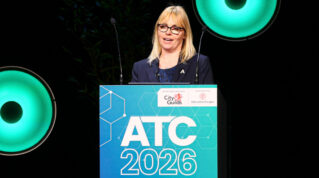The Department for Education handed £96 million of apprenticeship funding back to the Treasury last year, new figures show.
Of the department’s £2.554 billion total apprenticeship budget in the 2022-23 financial year, £2.458 billon, or 96 per cent, was spent.
It marks an increase in the underspend the department recorded in 2021-22, when just £11 million of its apprenticeship funding went unused.
The rise in underspend follows an increase to the overall apprenticeship budget between those years: it rose from £2.466 billion in 2021-22 to £2.554 billion in 2022-23 to ease pressure being caused by soaring numbers of higher-level apprenticeship starts, which are the most expensive to deliver. There were also no employer cash incentives in 2022-23.
In response to a written parliamentary question from Lord Storey, DfE minister Baroness Barran stated that in the last two financial years, on average, 98 per cent of the English apprenticeships budget was spent.
She said that any underspends in overall departmental budgets by the end of the financial year are returned to the Treasury.
Barran added that as employers choose which apprenticeships they offer and when; annual spend of the apprenticeship budget is “subject to employer demand”.

The underspend for 2022-23 means that £2.178 billion of apprenticeship funding has been handed back to the Treasury by the DfE in the six years since the UK-wide apprenticeship levy was launched in 2017.
These underspend figures are for England only. The devolved administrations also receive funding from the levy to invest in their skills programmes separately.
The DfE’s apprenticeship budget is used to fund training and assessment for new apprenticeship starts in all employers. It means that levy payers’ unspent funds are used to support additional costs and apprenticeships in smaller employers.
The Institute for Apprenticeships and Technical Education warned that the apprenticeships budget was heading for an overspend back in 2018. A National Audit Office report a year later said there was a “clear risk” the programme was not financially sustainable under current arrangements, and costs of training apprentices were around double what was expected in 2015.
But pressure was eased when the Covid-19 pandemic hit in March 2020 and numbers of new starters fell.
The government has committed to increasing England’s apprenticeship budget by £200 million to £2.7 billion by 2024/25.
See this week’s edition of FE Week for more analysis.
















The real story isn’t about how much of the budget was spent, it’s about how low the budget is compared to the levy income.
The levy is designated as a hypothecated tax, meaning it should be spent on what it is collected for. To frame the narrative narrowly as being one of budget versus spend is misleading.
We’re already at the point where rising costs and static funding rates are eroding quality and if something isn’t done the apprenticeship programme will fail. The levy has become little more than a cash cow to the Treasury, with the Gov and opposition parties preferring to widen the scope and re-brand it, rather than tackle the issue head on.
If you want a high quality skills training programme to deliver economic benefits, good jobs and meet net zero commitments, it needs to be funded properly.
It would be interesting, for full transparency, to also know how much money was raised through levy funds. The difference between levy funds raised and spent on the Apprenticeship budget must be close to £5bn now since the start of the levy. Even taking into account Barnett consequentials, the regular complaint that too much of the Levy is clawed back and not spent on apprenticeships appears correct. There needs to be increased transparency to build confidence in the system. The government must publish annual data on the distribution of Apprenticeship Levy funds, without this need for parliamentary questions to get this important information.